News from the Caribbean Hub: Looking Back (FY16) & Moving Ahead (FY17)
By William A. Gould, Caribbean Climate Hub Director
The Caribbean Climate Hub had an exciting year in FY16 with new staff, new collaborations, cool science delivery, high level visitors, working with partners in Latin America and the Caribbean and with partners in the USDA Climate Hub Network. I would like to share some thoughts and updates about our work developing climate change science and communicating adaptation information to the farming community in Puerto Rico and the U.S. Virgin Islands.
As a note of reflection, the challenge of responding to climate change, making decisions and progress in spite of all the uncertainties of the future, is a challenge worth accepting. The practices of agriculture and forestry are as old as human history, but the drive to feed ourselves and provide homes and healthy lives is as present as our next meal. The tools and technology we have to support sustainable agriculture are limited only by our imagination and ingenuity. However, adapting to climate change is a real and pressing challenge. The resources and conditions that support agriculture, such as freshwater availability, healthy soils, moderate temperatures, predictable weather patterns, stable markets and freedom from pests are changing in ways that are difficult to predict. Uncertainty makes planning and decision making more difficult for individual farmers as well as for planning agencies, incentive programs, and pest management. Adaptation practices that can be implemented and provide tangible benefits are very much needed for our tropical, diverse, and smaller scale agricultural activities.
During the last fiscal year, that ended in September 2016, we worked with many agencies and institutions to provide up-to-date climate science and deliver adaptation information to a wide range of stakeholders. We provided workshops and hosted events, including the visit to Puerto Rico of USDA Secretary Tom Vilsack. Secretary Vilsack met with farmers, scientists, the financial community, and the press and public interested in sustainable agriculture. He encouraged us to develop information and outreach that helps farmers in Puerto Rico and the U.S. Virgin Islands and contributes to sustainable agriculture and forestry throughout Latin America and the Caribbean. Here are a few of the accomplishments of the USDA Caribbean Climate Hub for fiscal year 2016:
- We initiated a collaboration among the Caribbean Climate Hub, nongovernmental organizations Bosque Modelo and el Josco Bravo, and five University of Puerto Rico professors to develop a series of trainings and on-farm demostrations on climate resilient practices for tropical farmers. The workshops will start in 2017 and will involve knowledge sharing and peer-to-peer learning with products being developed that can be used for future distance learning activities.
- With colleagues, we made new connections and developed new approaches to communicate science and practices for climate change adaptation and mitigation. The video series ADAPTA is an example of the educational products we are developing to communicate climate change science and viable adaptation practices for tropical farmers. The first video of the series focused on Cattle & Dairy Farming and the second on Plantains & Vegetables. The two upcoming videos will focus on permaculture and coffee production, so stay tuned! We also developed a podcast series about agriculture and climate change in collaboration with the Agricultural Experiment Station Library through their program “Desde la EEA”.
- We partnered with the Caribbean Landscape Conservation Cooperative (CLCC) and the Office of Insular Affairs to develop a draft report: ‘Synthesis of Climate Change Related Knowledge and Information in the United States Virgin Islands: An Institutional Analysis’ which provides baseline information for the Virgin Islands Climate Change Council as they develop more explicit climate vulnerability assessments in several sectors, including agriculture.
Drought effects in Puerto Rico 2014-2015. Photo/AFP.
USDA Secretary Tom Vilsack in El Portal at El Yunque National Forest in Puerto Rico. Read more about this visit to Puerto Rico and to the Caribbean hub: Secretary Vilsack Visits Puerto Rico to Talk Climate Change and Caribbean Agriculture
Recording of episodes of the ADAPTA series and the podcasts about agriculture and climate change.
In the upcoming fiscal year, the Caribbean Climate Hub will expand its governance structure and develop stronger collaborations by initiating a Steering Committee of all of the USDA agencies working in the Caribbean and an Advisory Board where we can share ideas with other federal agencies, Universities and local agencies working with climate change science and practices.
In the area of science development, the Hub is conducting an analysis of how current USDA programs affect vulnerability, resilience, and adaptive capacity in farming systems throughout the territory. We are also working with researchers at Colorado State University, North Carolina State University and the Southeast Climate Science Center to deliver new downscaled climate information to Puerto Rico and the U.S. Virgin Islands. Will be collaborating in authoring the first US Caribbean Regional Chapter for the 4th National Climate Assessment from the U.S. Global Change Research Program (USGCRP) scheduled for publication in 2018. We will also provide climate and agriculture input to the Puerto Rico’s State of the Climate 2014-2017 report.
Climate adaptation is important, however, agriculture also contributes to climate change. About 25% of the carbon, 50% of the methane and more than 75% of the nitrogen oxide are generated by agricultural activity globally. We can help design and implement mitigation practices that have local incentives and work globally to reduce greenhouse gas emissions. A good approach to address the challenges of climate change is to work collaboratively on many levels. If we can develop a vision for agriculture and forestry in Puerto Rico and the U.S. Virgin Islands that is widely shared – we can work together towards the same goals. A vision for agriculture and forestry not only addresses climate change but also addresses the balance of producing food and wood products with conservation, open space, recreation, housing, tourism, manufacturing, clean water, employment, research, and human well-being. In Puerto Rico and the U.S. Virgin Islands we have great natural resources, great Universities, great people, great beaches, and great food – the USDA Caribbean Climate Hub will do our best to work with our strengths to meet the challenges and build a sustainable future.
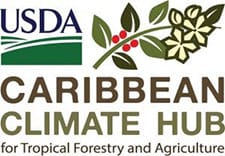
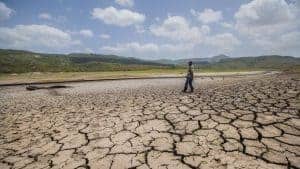
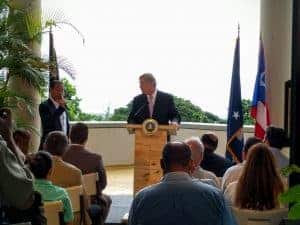
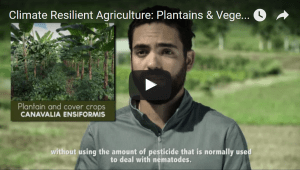
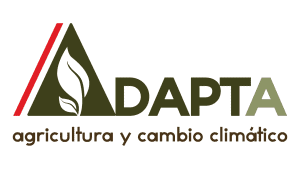
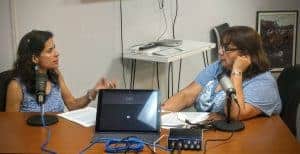
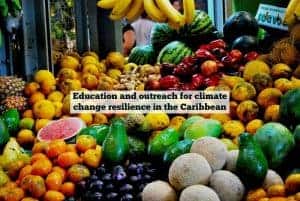
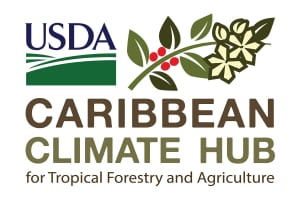

Follow Us!